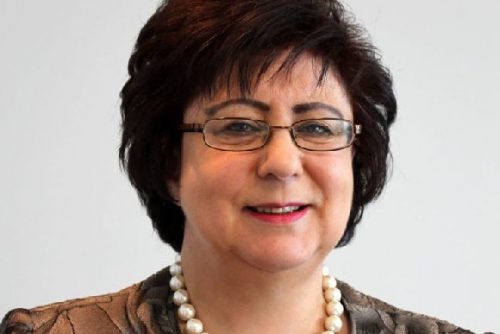SMEs continue to struggle to bank on the right finance relationship

Access to finance and establishing the right relationship with banks remains a headache for many SMEs.
Technological disruption and the rise of challenger banks has introduced significant change to the sector and growing businesses can sometimes feel frustrated, feeling like they are being held back.


Mark Scotter of Friend Partnership
“A lot of our clients are SMEs and owner-managed businesses,” said Mark Scotter, corporate finance director at Friend Partnership.
“The ones that are looking to grow, the one thing that prevents them doing that is access to capital – that is a constant theme.”
Denise Friend, corporate finance partner and founder of Friend Partnership said “the SME sector finds it much more difficult to raise finance” than larger businesses, especially for structured finance.”
She is calling on British banks to change their approach to revolving finance for high growth and entrepreneurial businesses.
She said: “Revolving finance has been a feature in the UK, but for larger businesses and it puts small businesses at a disadvantage.
“I’m talking about businesses which are profitable, cash generative, that the banks want to lend to, that want to grow.
“Yet they’re restrained by not having the same access to revolving finance and therefore they’re paying off the loan over a short period of time, whether that’s three or four or five years, when they could put their money to much better use.
“If the banks were able to lend on a revolving basis, it would free up a lot of time for companies and they could focus on their business and they could develop. We ought to try and put SMEs on the same level playing field as larger businesses. Give high growth businesses access to affordable bank finance and you wíll unlock growth in the UK. Business owners can plan into the medium and long term and undertake the investment activities that will ultimately benefit UK plc.”
Change consultancy Curium Solutions, which was named Greater Birmingham Chamber of Commerce’s business of the year earlier this year, has big plans for its future and is currently navigating its route through to the next stage of its development.

Andy Dawson, Curium Solutions
Director Andy Dawson said: “We have gone through various growth journeys over the last 10 years and we’re currently at a point where we are both pushing into America and developing a digital platform.
“So cash is king, and getting access to some capital to help us grow is our current priority, as is hiring a CFO.”
Curium’s experience would be recognised by many owners of small businesses, who are looking for the right relationship with their bank.
“We have had two banks in our 10 years,” he said. “I think it’s all about the person rather than the bank. If you lose your person, then you often lose your relationship with the bank as well.
“Finance is a really important thing for us at the moment to get the right support in place. That relationship is going to be increasingly important for small businesses like ourselves in the short to medium term.”
It is not just young businesses that face challenges. Brandauer, which has been manufacturing in Birmingham since 1862, also examined the relationship it had in place to assess what it felt it needed.

Rowan Crozier
Brandauer chief executive Rowan Crozier said: “Brandauer had a 55-year relationship with the bank prior to where we are now. We saw a huge churn rate of contacts, a more-than-regular change of strategy as well and that drove us to actually step back over a period of two or three years and think ‘what do we want from our bank?’.
“That actually led us to a move and we we changed banking provider to say about three or four years ago. The only bit of advice I would give to people is make sure the bank is actually what you need. It’s a partnership.”
For those companies that do review their banking partner, the emergence of the challenger banks can mean there may be more options.
Denise Friend, corporate finance partner and founder of Friend Partnership, said: “If you have a proposal from one of the mainstream banks and a challenger bank, the challenger bank is always more expensive.
“Now, they may be more innovative about capital holidays payments, bullet repayments, so they may make the funding structure more appropriate to give you more headroom and to able to invest in people.”

Participants at the SME round table discussion, hosted by Friend Partnership
Scott Peters, director of corporate and structured finance at Yorkshire Bank, was clear that banks do want to lend.
“Businesses are facing the same challenges whoever the funder is,” he said. “There’s definitely an appetite to land within the banks.
“Sometimes it’s a case of we’ve not got the message out there that actually those funds are available. Sometimes it takes an advisor or somebody else to link us in, so there is definitely more that banks can be doing to get the message out there as to our appetite across the market.
“I think there’s plenty of liquidity in the market but obviously it’s making sure that we get that liquidity to the end user. That’s where the biggest challenges are.”
Friend argued that “the SME sector finds it much more difficult to raise finance” than larger businesses, especially for structured finance.
“Obtaining the right form of finance to enable their business to thrive and grow is probably the most difficult issue that business owners have to tackle,” said Denise.









